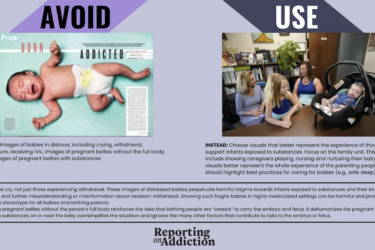
For Ghassan, a Syrian refugee seeking asylum after arriving in the United States about two years ago, a recent visit to the emergency room was not a choice but a necessity.
Without access to health insurance coverage, the Syrian father who had fled the war there found himself receiving charity care following an accident. Later, problems with his knee again put him on the receiving end of care without coverage. He had worked for 20-some years in Syria, he said, but found it hard to work with his leg pain.
“I feel very bad about this,” Ghassan (who asked that his full name not be used to protect him and his family) said about receiving the care. “I still feel very grateful.”
At a Health Journalism 2017 session on the new health challenges facing refugees and undocumented immigrants, Nancy Berlinger, a researcher for The Hastings Center, told AHCJ members that the undocumented population is more vulnerable to needing to seek out such charity care.
Because they are not U.S. citizens or legal residents, refugees and undocumented immigrants cannot obtain traditional health insurance coverage and instead must seek care through hospital emergency rooms or community care organizations, she said. That means that treatable conditions and chronic diseases that could be managed with continuity of care are instead treated like more expensive urgent care.
The idea that one has “to treat them in this odd, roundabout way is really disturbing to me,” she said.
(In an interview after the conference, Berlinger said that these patients could pay out-of-pocket for medical care, but noted that they are more likely to be low-income. Also, because of insurance companies’ negotiating power, the costs for services for insured patients often are lower than the same services billed to cash patients, she added.)
Health care providers and researchers are increasingly concerned about a possible “chilling effect” of the Trump administration’s policy changes on undocumented immigrants and refugees – and their families, Berlinger said, noting that these populations may not seek health care, cancel needed appointments and not go out as often to get food.
“There’s this big call now for figuring out how to collect data,” on vulnerable populations amid all the uncertainty about their future, she said.
Panelist Joan Flocks, who leads the Social Policy Division Center for Governmental Responsibility at University of Florida’s Levin College of Law, also discussed the ongoing challenges for farm workers who usually toil in harsh conditions, including in her state.
Other issues that can affect this population include mental health challenges, isolation, chronic stress and access to food problems, Flocks said. Journalists should note that the Environmental Protection Agency, not the Occupational Safety and Health Administration, oversees conditions for farmworkers, she added.
Bassem Chaaban, who oversees outreach for the Islamic Society of Central Florida and the Orlando-based group American Islam, also addressed panelists. Abe Aboraya, a health reporter for Health News Florida and WMFE-Orlando, moderated.
Panel resources
- Pew Research Center: Migration: Provides studies and data on global migration trends and patterns.
- undocumentedpatients.org: A project by The Hastings Center on health and the undocumented immigrant population.
- Russell Sage Foundation: With a focus on the social sciences, this organization funds research projects and publishes a peer-reviewed journal on social science research.
- Migration Policy Institute: This nonpartisan, Washington, D.C.-based think tank studies global migration issues, including the health-related aspects of trafficking, and on humanitarian efforts.







